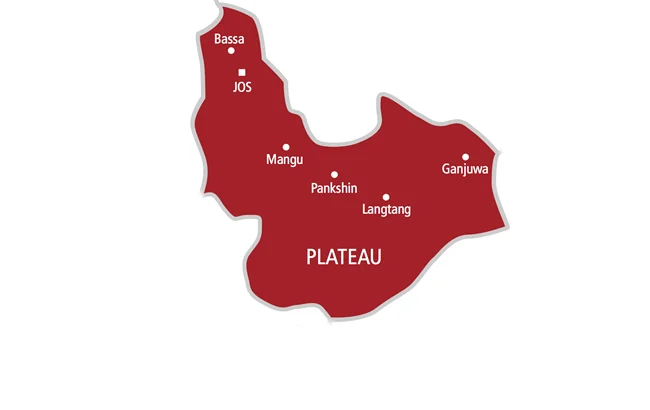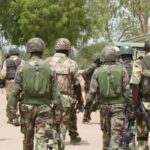Plateau State is once more in the news. Sadly, it is not in the news for salutary reasons. Following a communal clash between border communities of Ponlong, in Mikang Local Government Area, and Fungyallang, in Langtang North Local Government Area, both of Plateau State, on Saturday, 23rd March, 2024; at least fifteen people were killed, many were injured, properties worth millions of Naira were destroyed and food barns, at a time of unrivaled hunger, were razed.
Coming on the heels of the attacks on villages in Mangu, Bokkos and Barkin Ladi Local Government Areas of the state last year, in which hundreds were killed, this needless communal clash puts the state in very bad light.
It acutely undermines the state which was once a haven of tranquility; a melting pot of diverse cultures and whose mantra is: “The Home of Peace and Tourism”.
These recent killings and mayhem put a serious dent on the state’s image. They portray it as a state prone to incessant violence and bloodletting. Worse, it conjures an unsavory picture of a state, in which people are helplessly divided against themselves. Apart from the fact that it suggests or creates an unflattering portrait of dysfunction; it renders the state susceptible to the mischief and disdain of others. It also provides persons who wish to disparage it with ready fodder or ammunition for their vile propaganda.
- Fulani community accuses army of burning houses, killing cattle in Plateau
- 9 killed, houses burnt in Plateau communal clash
The governor, Barrister Caleb Mutfwang, has expressed outrage at the communal clash and called for an amicable resolution of the dispute that led to the clash in the first instance.
In a statement, the governor described the communal clash as “unnecessary and unacceptable”. He asked the two warring communities to initiate a dialogue which would foster harmonious co-existence.
The governor is right to denounce this communal clash. In fact, he is right to be indignant at it given the reversals which such acts of mayhem occasion and the distractions they visit on the quest to deliver good governance. But anger does not suffice. This clash could have been averted if critical stakeholders had played their assigned roles well or indeed, if they had worked assiduously and in concert.
Where were traditional rulers, community leaders, security agencies, development associations, leaders of faith-based organisations, youth groups and chairpersons of the two local governments when tension was building before it eventually snowballed and erupted into violence?
Certainly, the violence that erupted on Saturday, 23rd of March was not spontaneous. It must have taken a long to incubate. Before it reached its crescendo and spewed itself into violence, leaving on its trail deaths and mayhem; the aforementioned stakeholders ought to have intervened. They ought to have tried a series of mediatory or conciliatory moves. Failing these, they should have escalated and reported their worst fears. The non recourse to alternative dispute resolution or an escalation to higher authorities speaks clearly to complacency or complicity.
This is unbecoming, especially in these challenging times. These are times when people are hurting and their nerves are frayed on account of hardship.
Now that precious lives and properties have been lost in this senseless orgy of bloodletting; the state government must learn lessons and factor them to avert future occurrences. It is not enough for the security agencies to identify the perpetrators of this communal clash and to bring them to book as the governor has correctly ordered. It is also not enough to merely exude zero tolerance to senseless acts of violence. Going forward, pro-activity must be the preoccupation, leitmotif and guiding principle of the government and key stakeholders.
In pursuing a proactive or pre-emptive course, the government should demand that these critical stakeholders rise to the challenge of their responsibilities. Tensions such as have preceded this unfortunate communal clash and the needless carnage that followed, should be promptly addressed in their inchoate or formative stages. Where they prove intractable, they should be escalated without delay. By the same token, where mediation efforts fail at the local level, honest and impartial brokers/experts should be summoned to engage with the communities in order to engender peace or resolution.
Thankfully, the state has a Centre for Peace Building. Resources from this centre, or others outside it, can be summoned and deployed to address these challenges before they morph into clashes or violence.
Given the diverse nature of the state, the proliferation of ethnic groups and our recent unfortunate resort to identity politics, conflicts are inevitable. And entrepreneurs and merchants of violence are likely to exploit such fault lines. But the thing to do is to adroitly manage this diversity. One way to do so is to continually harp on and underscore the positive attributes that unite the people.
Another is to articulate and actualise a vision that is exalted and inclusive. Yet another is to run a just, transparent and equitable government in which everyone is being carried along and has a stake.
Beyond these, communal clashes can also be averted if the government frequently engages with stakeholders and emphasises for them the benefits to be derived from harmonious co-existence. The people should be made to understand that development can only take place in a peaceful atmosphere. Tourism on which pivot, the state revolves; can only thrive in a placid atmosphere and when the state is in the news for good and edifying accomplishments.
These points should, continually and relentlessly, be drummed into the citizens. A state which Unique Selling Point is peace and which touts tourism to generate revenue and employment cannot be defined by communal clashes. It is a grotesque contradiction.
Nick Dazang is a former director at the Independent National Electoral Commission (INEC)

 Join Daily Trust WhatsApp Community For Quick Access To News and Happenings Around You.
Join Daily Trust WhatsApp Community For Quick Access To News and Happenings Around You.

